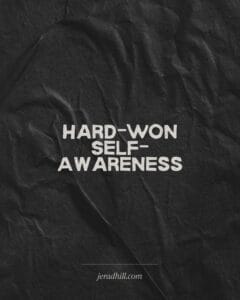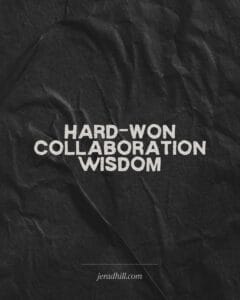I’m prone to isolation. It’s both a defense mechanism and an unhealthy desire. When I am not feeling secure in myself, I isolate. The idea of living isolated in the Montana backcountry also sounds pretty good. I like to believe that I would thrive isolated out in the middle of nowhere with nobody in sight. I’d spend my days caring for the land with my wife and kids.
I’m talking about two different types of isolation, both of which I know wouldn’t be good for me.
Dealing with yourself and others is one of the biggest challenges for many of us. Isolation was a big part of my childhood. Whenever I got in trouble, I was sent to my room or to sit in the laundry room by myself for what felt like hours. I also learned a lot about being isolated after my parents divorced. It was all I really knew.
Isolation and shame work well together. I have learned a lot over the past decade about shame, where it came from, how it infiltrates my innermost thoughts, and can influence the choices I make. Shame can quickly lead to isolation, which makes sense based on how I was punished as a child.
Through awareness, I now rarely shame myself with words in my own mind. I do recognize that I am not completely free of it though. I don’t isolate myself from others nearly as much either, but I am still prone to it.
Becoming aware of shame and where it came from helped a lot. That shined a light on how I would find myself on the fast track to isolation. Journaling has helped because writing helps me get the thoughts out of my head and onto paper where they don’t look as harmful. Awareness, however, can lead to more self-shame unless you identify where it came from and how it started.
It’s often that we find some level of awareness and that drives us deeper into despair. There are many ways to cope with personal dissatisfaction, and the only helpful way is to learn where it came from and do the work to overcome it.
Once I realized that there was another way that I can handle being frustrated with myself, I found some freedom. Initially I learned about this through counseling, and I’ve talked about that journey in other posts. I have been considering giving counseling another try because I believe there is a lot of value in talking through issues that plague you with someone who has a lot of experience problem-solving in those areas.
I have learned that isolation is not the right answer for me. When I think of isolation as the solution, it looks a lot like selfishness. My isolation requires me pulling away from my responsibilities, and that is not fair to my family and friends.
There are two promises in the Bible that have helped me immensely when I find myself leaning towards isolation:
Philippians 4:6-7: “Do not be anxious about anything, but in everything by prayer and supplication with thanksgiving let your requests be known to God. And the peace of God, which surpasses all understanding, will guard your hearts and your minds in Christ Jesus.”
You can’t be anxious and thankful at the same time. I started to force myself to be thankful when my mind wanted to focus on what was wrong. Through that, I found peace and understanding that was lacking when I would focus on the problem. Negative thinking is inward-focused. Thankfulness is outward thinking, and it breaks the inward spiral that leads to isolation.
Lamentations 3:21-23: “But this I call to mind, and therefore I have hope: The steadfast love of the Lord never ceases; his mercies never come to an end; they are new every morning; great is your faithfulness.”
This promise of hope reminds me of where my hope lies. When I think inward, I lose hope. When I think outward about where my hope lies, I remember where my hope comes from.
Whether you find your hope in God or not, inward thinking leads to isolation. Think about all that you have to be thankful for. I would suggest writing it down somewhere convenient so you can quickly access it when you feel like isolating again.
The world offers many ways to isolate in disguise of activities such as online gaming and social media. It’s never been easier to hide in plain sight. For me, it took bringing it up in conversation with others to recognize that I was not the only one. I knew I couldn’t be the only one. Honestly, I am writing these posts because I still believe I am not the only one.
Isolation leads to loneliness, and when we are prone to isolate, that is when we need other people the most. Do the work to find and build healthy friendships with others who you know and who know you well enough to tell when you are leaning towards isolation.
I still occasionally think about that isolated life in the Montana backcountry. The difference now is that I recognize it for what it really is, not a dream, but an escape. And escape isn’t the answer when what I really need is connection.
The men who will thrive in the coming years aren’t the ones who figure out how to survive alone, they’re the ones who learn to do life together. Don’t let shame convince you that isolation is safer. It’s not. The risk of being known is always worth taking.
What isolation pattern do you need to break to find the connection you’re actually looking for?





